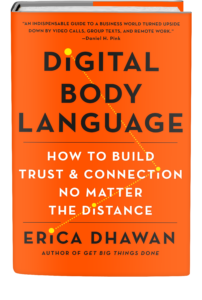My guest today is Laura Liswood – she serves as Secretary General of the Council of Women World Leaders, and I’m so honored to have such an accomplished and amazing woman leader on the show. Through the course of her career, Laura has also served as the former Managing Director and Senior Advisor of Goldman Sachs and was named Managing Director for Global Leadership and Diversity for Goldman Sachs as well. She has a wonderful perspective on diversity and inclusion and in her latest book, The Loudest Duck she uses parables to examine the challenges to traditional workplace diversity efforts, including the issues of inclusion and exclusion. You’ll find her insights and tips for creating inclusive workplace teams insightful and practical, so I hope you’ll take the time to listen.
[Tweet “Considering #Inclusion and Exclusion in Building #Collaborative Teams, w @LauraLiswood”]Is your organization healthy when it comes to inclusion and exclusion?
You may not have given much thought to issues of inclusion and exclusion, but if you’re the leader of a company or organization you owe it not only to your team members but to the success of the company itself to bone up on the subject. More and more statistics and studies demonstrate that a diverse workforce is integral to a strong economy and that a diverse workplace can capture a greater share of the consumer market in any niche or industry. My guest today, Laura Liswood shares from her wealth of experience how you can practically move your organization toward a greater sense of inclusion, resulting in the diversity that leads to greater profitability and success for your company.
For better inclusion, pay attention to who is being heard and who is being excluded.
It’s easy in any work or organizational environment for certain personalities or people in certain roles to have the floor most of the time when it comes to meetings and interactions. Today’s savvy leaders have learned to pay attention to who’s talking the most, who’s not sharing much, and who’s being left out of the discussion altogether. Why? Because they understand something my guest on this episode, Laura Liswood stresses: The more voices that can be heard within an organization, the better that organization will reflect the diverse attitudes and opinions within their company and market, leading to greater success in almost every area. You’ll enjoy hearing Laura’s practical advice for leaders of all types of organizations, so be sure you listen.
[Tweet “For better #inclusion, pay attention to who is being #heard and who is being excluded @LauraLiswood”]Be vigilant when it comes to the “pools” you fish from when looking for team members.
A recent post on the Salesforce website states that “Inclusion in the workplace is recognizing, valuing and fully leveraging the diversity of others to create a positive work atmosphere that promotes equality and delivers results. It is the very act of celebrating and utilizing people’s differences to the benefit of the organization, not merely tolerating them.” The post highlights what the research has proven, companies that are more gender diverse and more ethnically diverse outperform others. And one of the key components of making that diversity work in a powerful way is inclusion. On this episode of Masters of Leadership, Laura Liswood shares how the issues of inclusion and exclusion should be taken seriously by those in the leadership roles of companies big and small.
Take time to truly understand the feelings people have about the issue of inclusion and exclusion.
Many of the responses the ideas of inclusion and diversity illicit in the workplace are confusing. Smart leaders will take the time to get beneath the surface, to seek a genuine understanding of the feelings behind those responses. It’s the only way they’ll be able to bring cohesion to a diverse team and move everyone toward true productivity and effectiveness. Laura Liswood ends this episode of Masters of leadership with insight into that very issue, so if you want to know how to both build a diverse company and set it up for greater success by doing so, you need to hear what Laura has to share.
[Tweet “Take time to truly understand the feelings people have about the issue of #inclusion and exclusion @LauraLiswood”]Outline of This Episode
- [1:20] The definition of collaboration Laura subscribes to in her work.
- [4:54] The importance of inclusion when it comes to collaboration.
- [8:16] Technologies that help and hurt collaboration and inclusion.
- [13:57] Laura’s advice to leaders who are concerned about issues of inclusion and exclusion.
- [18:45] Tips for becoming a master of inclusive collaboration.
- [21:33] Consider that you need to understand the feelings people have about exclusion and inclusion.
Resources & People Mentioned
- Laura Liswood
- BOOK: The Loudest Duck
- BOOK: Women World Leaders
